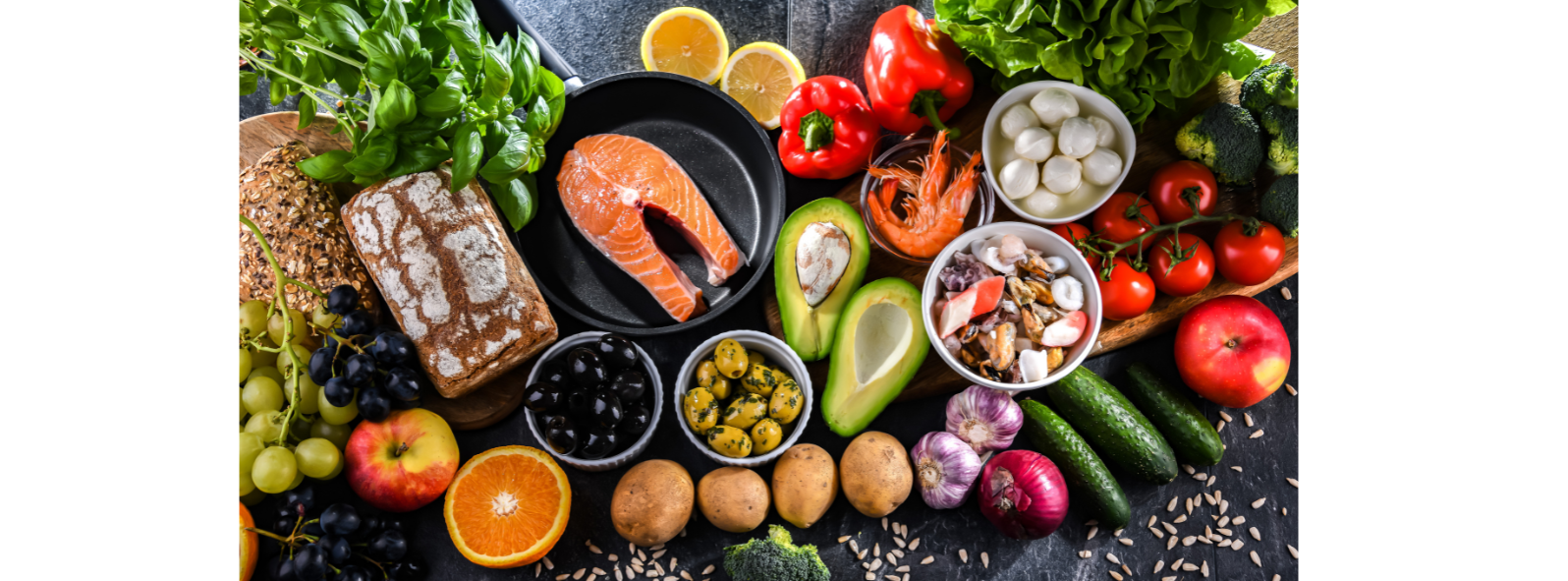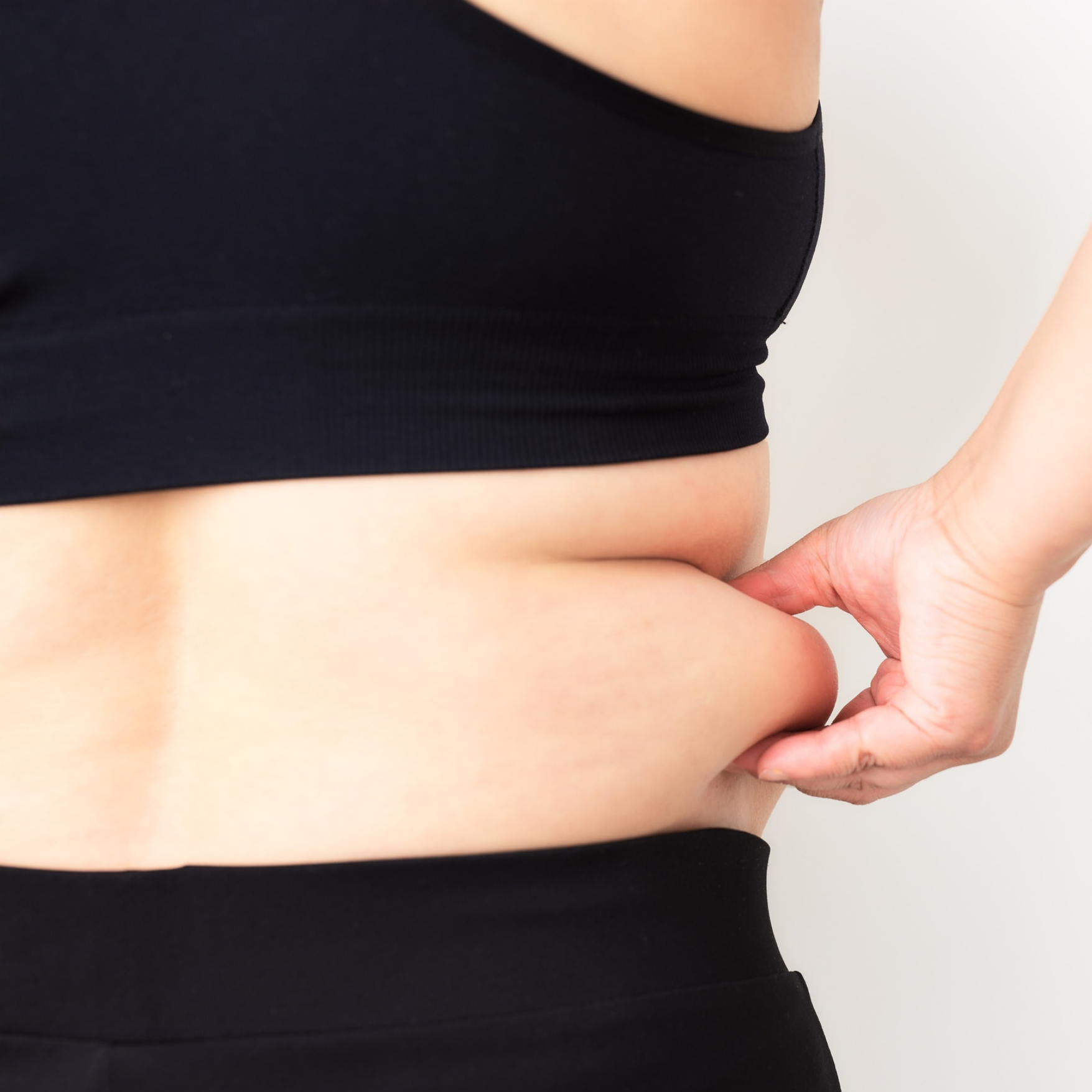Struggling With Weight Gain in Perimenopause? Here’s why and what to do about it.
For many women, perimenopause brings unwelcome weight gain—particularly around the middle. Even if your eating habits or activity levels haven’t changed, the scale may start creeping up. So what’s actually happening, and what can you do about it?
Hormones and Metabolism
During perimenopause, estrogen levels fluctuate and gradually decline, which can shift where your body stores fat. Lower estrogen tends to promote fat storage around the abdomen rather than the hips and thighs. At the same time, progesterone and testosterone levels change too, influencing appetite, mood, and muscle mass.
Metabolism also slows with age, by about 2–4% per decade, meaning your body burns fewer calories at rest [1]. Combined with hormonal changes, this can make weight management much harder, even with the same lifestyle as before.
Muscle Loss and Energy Burn
As estrogen drops, muscle tissue naturally declines too. Less muscle means a lower basal metabolic rate (the energy your body uses at rest). That means you burn fewer calories throughout the day—even when doing nothing. Without resistance training or adequate protein, this loss can accelerate [2].
Strength training becomes especially important in midlife. Lifting weights, resistance bands, or even bodyweight exercises help maintain lean muscle and metabolic health.
Sleep, Stress, and Cravings
Poor sleep and higher stress levels are common during perimenopause. Night sweats, hot flushes, and anxiety can lead to sleep deprivation, which affects hunger hormones such as ghrelin and leptin [3]. This makes you more likely to crave high-sugar, high-fat foods.
Cortisol, your stress hormone, can also increase fat storage around the abdomen. Building relaxation routines—like mindfulness, breathing exercises, or gentle yoga—can help regulate stress hormones and reduce emotional eating.
Insulin Sensitivity and Blood Sugar
Declining estrogen can impact how your body processes carbohydrates. Insulin sensitivity often drops, meaning your body needs more insulin to manage blood sugar levels. Over time, this can increase fat storage and make weight loss more difficult [4].
Balancing blood sugars with protein-rich meals, high-fibre foods, and regular activity can support stable energy and appetite. Avoid skipping meals, as this can worsen blood sugar fluctuations and cravings later in the day.
Nutrition for Hormonal Balance
A Mediterranean-style eating pattern, rich in vegetables, fruit, olive oil, fish, nuts, and whole grains, has been shown to support both hormone balance and metabolic health [5]. Protein is key too. Aim for a source of protein at each meal, such as eggs, Greek yoghurt, lean meat, tofu, or legumes, to help preserve muscle and keep you fuller for longer.
Limit ultra-processed foods and alcohol, as these can worsen hot flushes, sleep quality, and inflammation.
What Actually Works
Perimenopausal weight gain is complex, but small, consistent changes make the biggest difference. Try combining:
- Strength training twice a week
- 30–45 minutes of aerobic activity most days
- 25–30g of protein per meal, incorpotated in to a Mediterranean-style diet
- A structured sleep routine
- Mindful eating and stress management
If your weight feels “stuck,” it’s not your fault. Hormonal changes make things harder, but not impossible. Getting tailored support from a dietitian experienced in hormonal weight management can help you create a sustainable plan that fits your body’s new rhythm.
References
- Poehlman ET, et al. “Energy expenditure and aging.” Am J Clin Nutr. 1992;55(5):1167–1173.
- Messier V, et al. “Menopause and sarcopenia: Estrogen deficiency associated with muscle loss.” J Clin Endocrinol Metab. 2011;96(2):E267–E272.
- Spiegel K, et al. “Impact of sleep debt on metabolic and endocrine function.” Lancet. 1999;354(9188):1435–1439.
- Carr MC. “The emergence of the metabolic syndrome with menopause.” J Clin Endocrinol Metab.2003;88(6):2404–2411.
- Estruch R, et al. “Primary prevention of cardiovascular disease with a Mediterranean diet.” N Engl J Med.2013;368(14):1279–1290.



